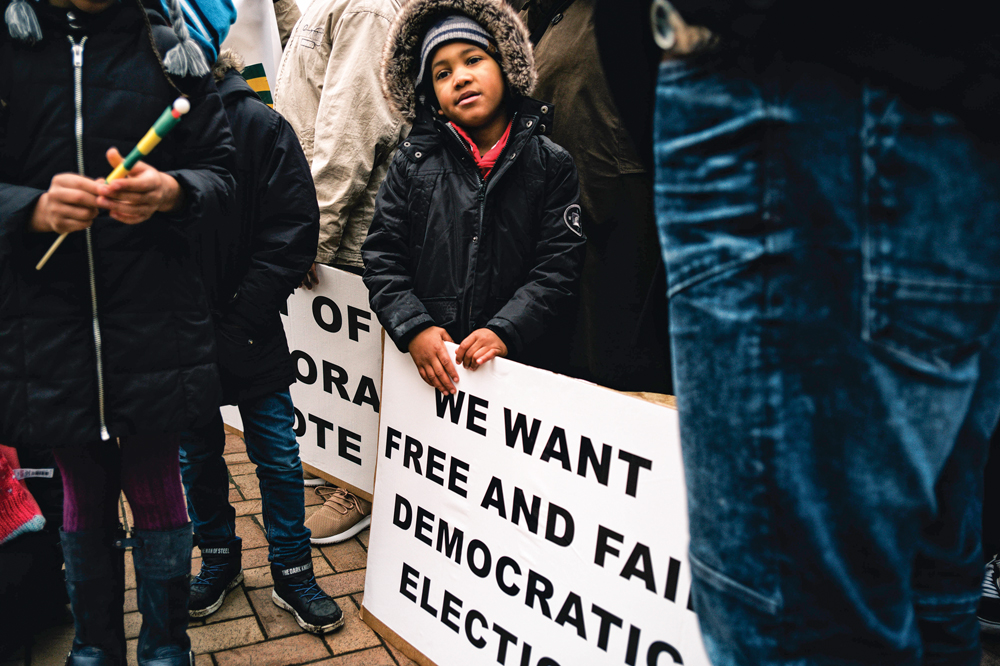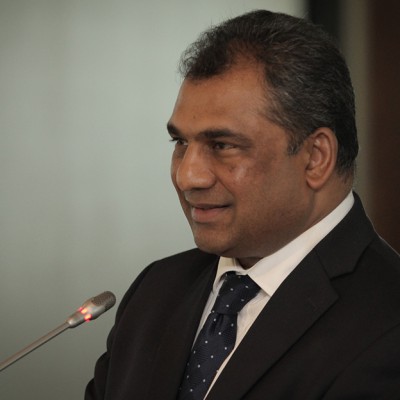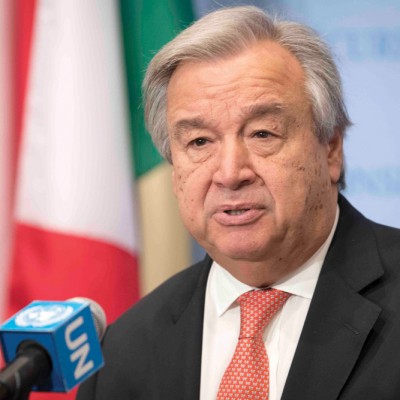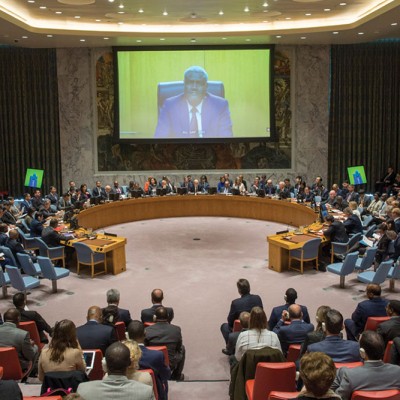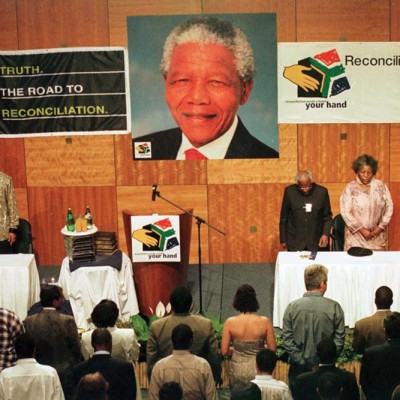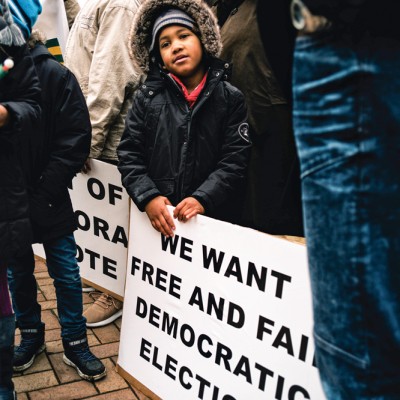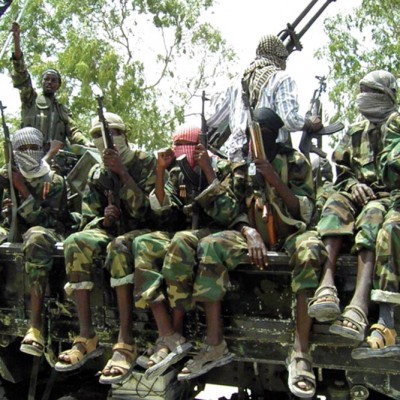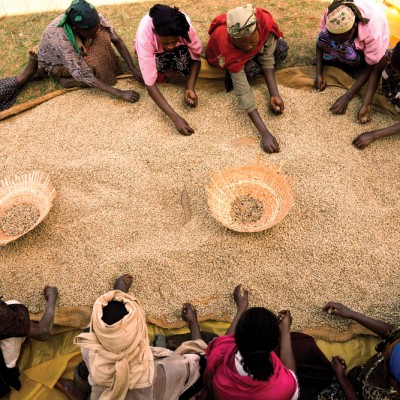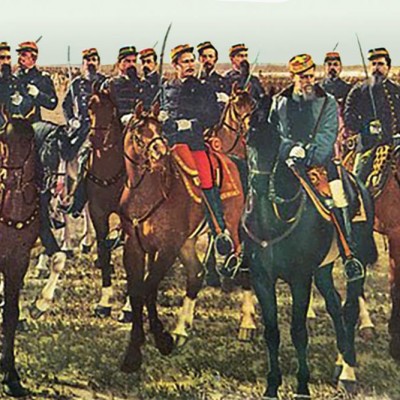At the end of the Cold War, Huntington described the expansion and contraction of democracy through history and across the world in terms of “waves”. Referring to what he called “democracy’s third wave” (argued to have begun in the mid-1970s), he asked whether the world was “[e]arly in a long wave, or at or near the end of a short one”.1 He could only speculate, however, as to the answer to his question.
Although Huntington’s analysis of democratisation is not without criticism, it remains true that at the time of his writing, a significant number of countries in the world lacked democratic regimes – that is, political systems involving competition, inclusiveness and civil liberties.2 Sub-Saharan Africa, in particular, “remained personal dictatorships, military regimes, one-party systems, or some combination of these three.”3 In Africa, the opportunity and need for democratisation was therefore significant.
The Notion of a Democratic Age
With hindsight, we know that the so-called “defeat” of communism and the subsequent end of the Cold War ushered in what Diamond describes as “an unprecedented democratic breakthrough”4 and Doorenspleet an “explosion of democratization”.5 Africa, in particular, experienced an increase in democracies – from three in 1990 to 24 in 2008.6
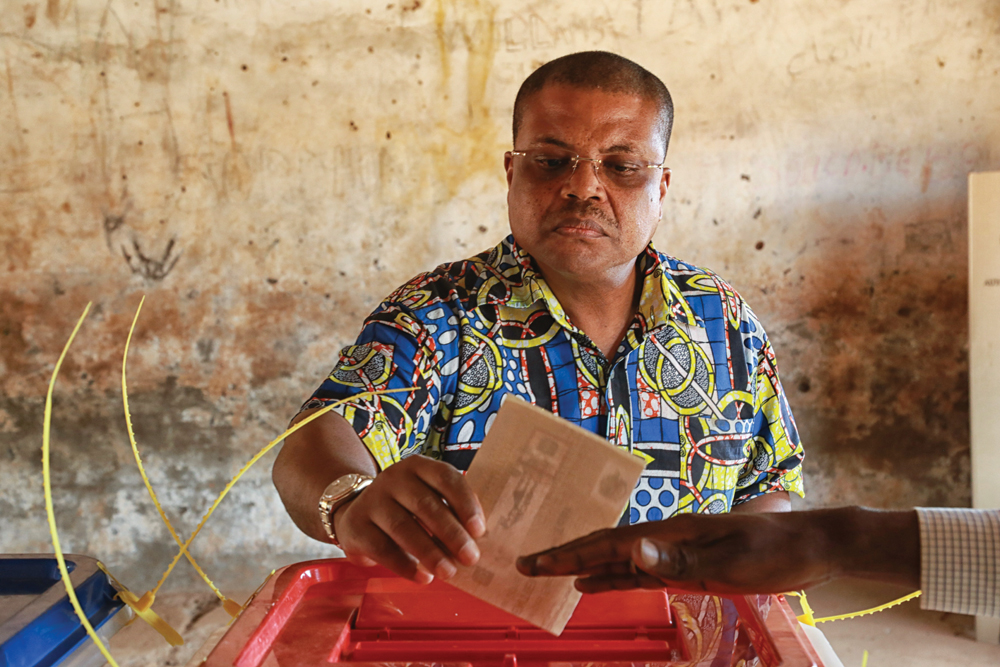
Consequentially, Zakaria begins his book, The Future of Freedom: Illiberal Democracy at Home and Abroad, with the following words: “We live in a democratic age.”7 Zakaria explains his opening statement by arguing, among other things, that democracy “has become the standard form of government for humankind” and “is the sole surviving source of political legitimacy”.8
Democratisation in Africa
Democracy’s journey in Africa, often hindered and challenged by various factors, has been far from smooth, however. Today, the process of democratisation across the continent is incomplete, having come to a halt in some countries and having regressed in others.9 Houngnikpo describes democracy’s journey on most of the continent as being “treacherous”.10 Such a description offers a very different picture of democratisation in Africa when compared to Huntington’s “wave” metaphor11 and Doorenspleet’s reference to “steps”.12
Over time, democratic values have come to include human dignity; free and fair elections; the rule of law; equality before the law; and human rights and freedoms, including freedom of the press, freedom of religion, freedom of speech and freedom of association. In predicting possible scenarios for the future of democracy’s third wave, Huntington observed that “the weakness of democratic values among key elite groups and the general public” was the most prominent factor responsible for transitions away from democracy to authoritarianism in the years 1922–1942 and 1960–1975 – what he labelled as the first and second reverse waves of democracy.13 Further to this, it was the “[o]ne serious impediment to democratization… among political leaders in Asia, Africa and the Middle East”.14 Scholarly work suggests – albeit with greater emphasis on the elite – that Huntington’s predictions based on the first and second reverse waves of democracy are accurate for Africa in contemporary times.
Falana argues: “To move Africa forward, emerging democratic governments would have to confront a legacy of poverty, illiteracy, militarization, and underdevelopment produced by incompetent and corrupt governments.”15 Reflecting indirectly on elite leadership, a 2014 AfroBarometer news release found that “Africans’ support for democracy is robust and rising (7 in 10 Africans prefer democracy to other political regimes) but the supply of democracy has not kept pace with demand”.16 In 2015, Freedom House listed “5 governance challenges for Africa”, all of which have negative implications for democracy.17 These included the dismal state of press freedom, the proliferation of restrictive laws, entrenched leaders and the abuse of term limits, weak regional human rights mechanisms, and the absence of economic competitiveness.
Although the factors inhibiting democratic values are varied, they remain connected and invariably underscore poor leadership, particularly on the part of Africa’s political and military elite.
Military Intrusion in Politics
Huntington’s observation regarding the weakness of democratic values – whether it be among key elite groups, the general public, or both – is relevant to Africa’s civil-military relations. This is because, by definition, these relations involve interactions between the key elites within the military, those running the state (that is, government) and the general public.
In his study of democracy’s reverse waves, “[t]he overwhelming transitions from democracy… took the form either of military coups that ousted democratically elected leaders, or executive coups in which democratically chosen chief executives effectively ended democracy by concentrating power in their own hands.”18 The latter could not have occurred without the backing of the military or the support of other elements of the security sector more broadly.
Mangu states:
African armies pose the greatest threat to constitutionalism and democracy on the continent… The failure of constitutionalism and democracy in postcolonial Africa was primarily due to the intervention of the military on the political scene. Africa abounds with examples where the military has usurped power, suspended the constitution in whole or in part, or terminated transition processes that seemed to be succeeding.19
If Africa’s development and democratic challenges are primarily attributable to leadership issues, as Ngambi and other scholars argue,20 then the role played by the military cannot be excluded from an analysis of Africa’s development and democratisation. In their assessment of the hurdles facing democratisation in Africa, several scholars give attention to the phenomenon of military intrusion in African politics.
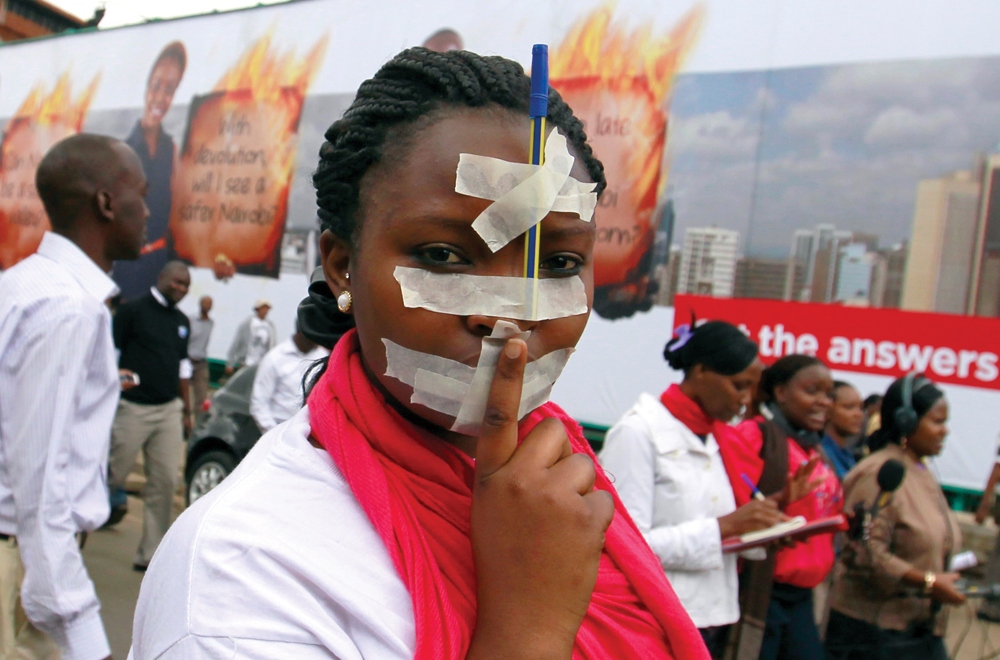
The Military Coup d’État in Africa
In democratic terms, the most explicit form of military intrusion in politics is the military coup d’état – the military execution of a “sudden and unconstitutional change of government or regime”.21 The African Development Bank (AfDB) recorded more than 200 military coups in Africa since the post-independence era of the 1960s, with 45% of these being successful.22
Why are military coups undesirable, and why have they occurred with such comparatively high frequency in Africa? In answering the first question, it is important to understand that, broadly, a military coup can occur in a democratic or an undemocratic state. The extent of freedom experienced by citizens underscores the fundamental differences between these two forms.
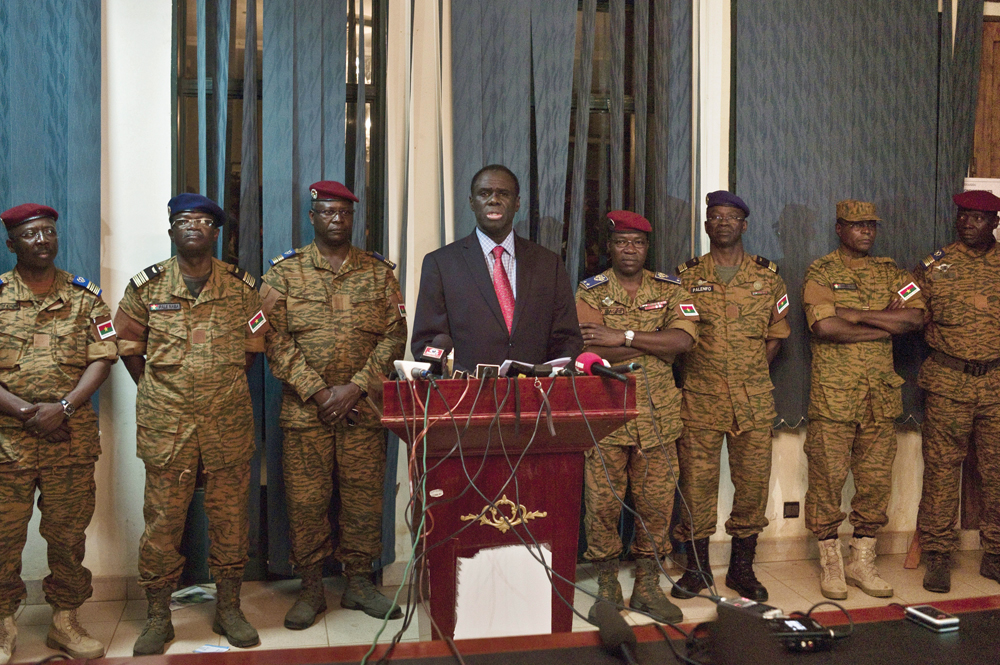
In a democratic state, military intrusion in politics inhibits democracy because “intrusion” involves moving beyond constitutionally and democratically mandated roles and goes against the authority vested in democratically elected civilians. When the military intrudes in the politics of a democracy, it intrudes upon the sovereignty of the people who elected representatives to government. The occurrence of a coup in a democracy therefore points to the failure of democratisation.
African militaries, in particular, because of their historically negative impact on development and influence over democratisation, therefore have an important role to play in relation to democratisation. They must know, understand and accept their role in relation to the political sphere. This will lead to what civil-military relations scholars refer to as “democratic control” of the military. Without the military’s acceptance of the principles of democratic control, democracy cannot exist. The most important among these include accountability before civil authorities; adherence to the rule of law; transparent planning and budgeting processes; respect for human rights; submission before political control over operations and expenditure; regular consultation with civil society; and military professionalism.23
The notions of “military intrusion in politics” and “democratic control” should not detract, however, from the fact that the military is a tool and therefore an extension of politics. This means that the military does have a political role to play, more especially in the context of a country’s foreign policy. A military under democratic control is well aware of what this role is and abides by it.
What about coups in undemocratic states? This question is especially important because “the vast majority of coups do not happen in democracies”.24 The record of military rule in Africa discourages preference for a military government over a civilian regime that is authoritarian. In the post-Cold War era, the latter often masquerade as democracies. Even so, Africa’s record of military-led governments is uninspiring. McGowan writes:
Military rule is by definition authoritarian and is often very corrupt… and the historical record shows that military rulers “govern” no better than elected civilians in Africa, often much worse – witness Babangida, Idi Amin, Jean-Bedel Bokassa and Sani Abacha. Because African militaries in power often fail to create political order, they are part of the problem, not its answer.25
A further reason why military rule should never be preferable to authoritarian civilian rule is the greater difficulty that comes with moving away from the former, as opposed to the latter, and dealing with the ill-effects of military rule. For a number of reasons, outlined by Hutchful,26 civilian authoritarianism offers greater prospects for democratic transition.27 First, military rule, at its end, raises the problem of bringing the military under democratic control. Related to this, there exists the challenge of preventing the re-entry into politics by the military. Second, military rule in Africa has had a negative impact on military institutions, professionalism and efficiency. This adds to the challenge civilians face in bringing the military under democratic control. Third, the struggle against military authoritarianism, because it inevitably involves shifting power dynamics, has often led not to democracy but to new forms of militarism and militarisation.
What then of the notion of “good” or “democratising coups”, interpreted as “a development that furthers democracy”?28 Marinov and Goemans conclude that “the new generation of [post-Cold War] coups have been far less harmful for democracy than their historical predecessors”, with the majority having “led to competitive elections, not a consolidated military regime”.29 In support of the “good coup”, Thyne and Powell argue that “coups in authoritarian regimes can provide a necessary ‘shock’ to push authoritarian states towards democracy”.30 They write:
Though history is unfortunately replete with examples of coup leaders who chose to consolidate their power and continue authoritarianism following a successful coup, many others have chosen to enact meaningful reforms toward democratization – reforms that would have been wholly unlikely in the absence of a successful coup.31
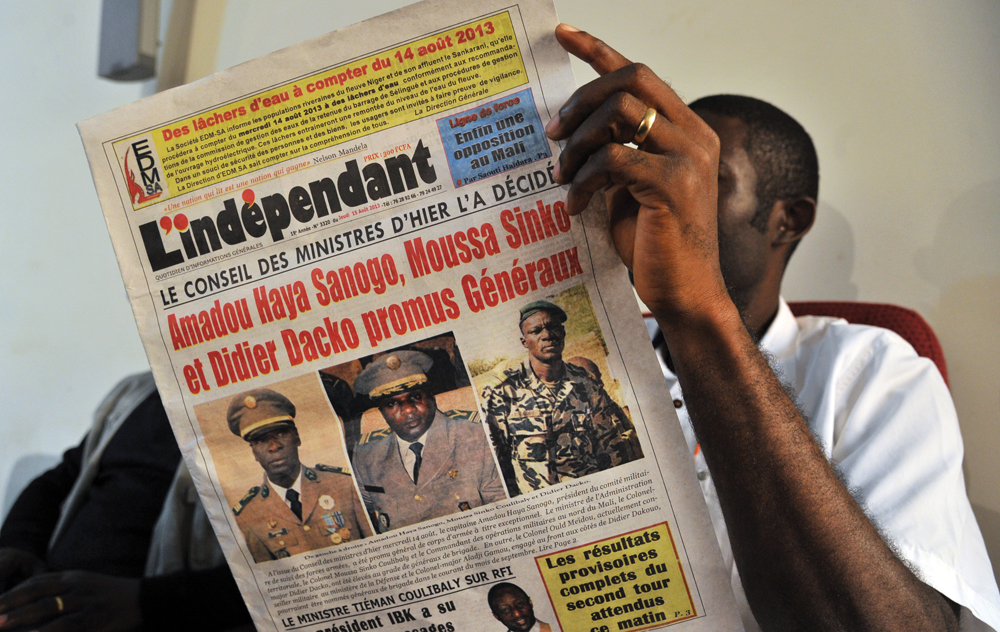
The same authors offer only three examples of “good coups”, one of these from Africa – the coup in Mali in 1991. More recently, in November 2017, Zimbabwean president Robert Mugabe relinquished his 37-year hold on power. Zimbabweans who suffered under his authoritarian rule and who understood the events in the days preceding his resignation as constituting a coup will likely have welcomed the development, describing it as a “good coup”. Evidence makes a strong case, however, for the argument that the military elite ushered Mugabe out because it was in their interest to do so. This was the same military that had propped up the same undemocratic regime. The military officers who oversaw the coup handed control over to a civilian who met with their approval. This retained their access to revenue, while avoiding the political baggage that would have accompanied their hanging onto power indefinitely. This civilian was Emmerson Mnangagwa, the new leader of the Zimbabwe African National Union – Patriotic Front (ZANU-PF) and Zimbabwe’s new president. Mnangagwa was a close ally of Mugabe and enjoys the support of the military. This may not inspire hope for Zimbabwe’s democratisation. He has, however, pledged to hold credible elections in July 2018.32 Time will judge the validity of this pledge and whether Zimbabwe’s coup was, in fact, a “shock” to democracy.
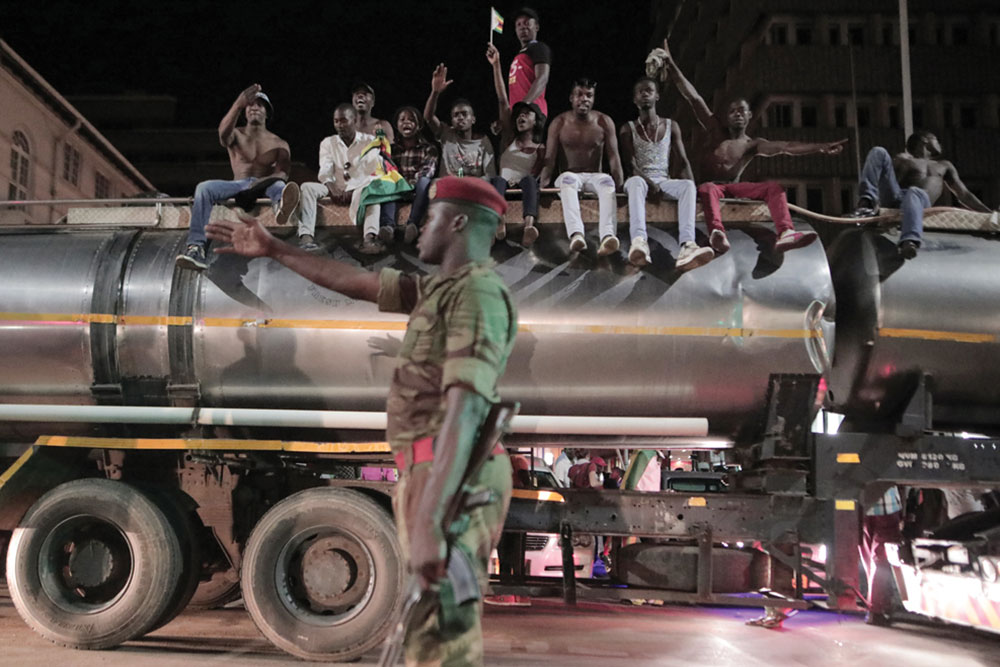
Even if in the aftermath of a “good coup”, and if the military steps aside and allows democratisation to run its course, there is no guarantee that it will not intervene again in future, this time to the detriment of democratic development. Mali is a case in point. Thyne and Powell present this country’s 1991 coup as an example of a “good coup”. In 2012, the country witnessed another coup, described as “a severe setback for democracy in Africa”.33 The country remains in turmoil after this latest coup left a power vacuum exploited by Islamic insurgents.34
To avoid such a scenario, the same military that created an opportunity for democracy to grow in the midst of authoritarianism must allow the civilian government and civil society to bring it under democratic control – a process that will require security sector reform, the concomitant professionalisation of the military and opportunities for education on civil-military relations across society at large.
To answer the second question, related to the high frequency of military coups in Africa, one must first understand the conventional purpose of the military, the function of African militaries during colonialism, and the generally weak nature of African states. African militaries have executed and attempted coups at regular intervals because they can. The military exists to defend the state and its inhabitants against external aggression. To fulfil its task, the military is equipped with the necessary means to do so. Paradoxically – and this has often proven to be the case in Africa – the means given to the military can also be used to threaten the state and its inhabitants.
“During the colonial era the military was expected to project the dominance of the colonial powers.”35 Inevitably, this involved the use of the military as a tool of “domestic politics” in each of the colonial territories. The colonial experiment therefore instilled a military culture of intrusion in politics that is antithetical to the civil-military norms of a democratic age.
Given the extractive nature of colonialism, the physical departure of Africa’s colonisers left Africa’s independence leaders in charge of weak and ill-equipped states – a condition that has persisted into contemporary times, although not to the same degree. Throughout post-independence Africa, when leaders, for different reasons, have failed to fulfil expectations surrounding modernisation and development, the military – due to its inherent design and the culture established during colonialism – has often felt it necessary and justified to intervene. Lieutenant Amadou Konaré of the Malian Army had, in fact, cited the government’s failure to equip troops to defend the nation against northern rebels as a reason for the 2012 coup.36
A Persistent Phenomenon?
Military coups are likely to remain a feature of the Africa political landscape, even if at a reduced rate. Writing in 2015, Ntomba suggested that military coups in Africa are slowly going out of fashion.37 He offered several reasons in support of such a development, each of which receives a response below:
The speed with which regional and continental bodies sanction countries that have undergone coups
Writing in 1993, with reference to the high frequency of military coups during Africa’s post-independence period, Clapham observed, “It is this profoundly undemocratic inheritance that many Africans have recently sought to change.”38 The perceived intent that Clapham noted characterised the 33rd summit of the Organisation of African Unity39 (OAU) in 1997 and finds reflection in, among others, francophone Africa’s Bamako Declaration (2000),40 Article 30 of the Constitutive Act of the African Union (AU) (2000)41 and Chapter 8 of the AU’s African Charter on Democracy, Elections and Governance (2007).42
Despite these good intentions, however, research conducted by the AfDB reveals that 67 military coups (attempted and successful) occurred over the period 1990–2010.43 Military coups that followed this period include the 2012 coup in Mali, attempted coups in Burundi and Burkina Faso – both in 2015 – and the most recent coup in Zimbabwe.
Given the continued occurrence of military coups, the impact of rhetoric and policy positions in dissuading this form of military intervention is highly questionable. The reason for this will rest to some degree, if not largely, with the AU’s failure to apply its constitutive principles of good governance and human rights in a consistent manner.44 This has ultimately led to a problem of credibility for the organisation.45
The Central African Republic (CAR) coup of 2013, for example, led to immediate suspension of the country from the AU and the AU placing the coup leaders under sanction. The president, François Bozizé – who had been overthrown – had, however, initially come to power through a coup in 2003 against his predecessor, Ange-Félix Patassé.46 While the AU condemned the coup in this earlier instance,47 it took no action against the coup leader, nor was the CAR suspended from the organisation. Once a country has undergone a coup, it very often experiences more.48 Since the AU showed tacit support for Zimbabwe’s first and recent coup, one cannot help but wonder whether the same inconsistency that has characterised relations between the AU and other African states also awaits the future of Zimbabwe. The failure of the AU to apply its constitutive principles of good governance and human rights consistently, contrasts with Ntomba’s perception of the speed with which the necessary bodies have acted against military coups.
Consensus that democracy should be the only means of ascending to power
The claim that consensus exists that democracy should be the only means of ascending to power is debatable. The figures for military coups, noted previously, speak for themselves. Houngnikpo’s contention that “democracy’s appeal has yet to attract African leaders in general and military ones in particular”49 suggests a different picture of Africa’s contemporary reality to the one presented by Ntomba. It also suggests that a primary reason for democratic reversals during the 20th century persists today: “[T]he weakness of democratic values among key elite groups and the general public.”50 While research conducted by AfroBarometer51 reveals that African citizens are generally in support of democracy, the same is not true of the continent’s political and military leaders. As long as this remains so, the claim that military coups are going out of fashion is a premature one, at best.
The increasing opportunity to engage in politics through elections and the consequential decline in support of coups
An overemphasis on elections (democratic procedures) in assessing the development and spread of democracy across Africa risks neglecting an assessment of the very important principles and values without which no government can claim to be democratic. Citing Joseph (1999), Houngnikpo has the following to say about elections in Africa:
Clearly, Africa has made advances in the apparent competitiveness of elections with the renewed participation of opposition parties. However, only in a few instances do elections represent real opportunities for the population to determine who governs. In Joseph’s words, “there was a sharp learning curve after 1989 as authoritarian regimes mastered the script of contemporary democratization while finding ways to neutralize and disable its transformative mechanisms.” They quickly learned to manipulate the electoral process and divide the opposition, creating what Joseph calls “soft authoritarianism”.52
Recent elections in Africa suggest a continuation of the approach described above:
Using violence as but one indicator of electoral quality or integrity, elections in sub Saharan Africa have not demonstrated much improvement since the 1990s… Of the 100 elections held between 1990 and 1999, 24 percent experienced either violent repression or large‐scale violence. From 2010 through 2013, approximately 21.5 percent of the 51 elections held have experienced similar levels of electoral violence.53
Elections, on their own, have failed to meet the proven demand for democracy in Africa. This will remain so even in the face of credible elections, as long as citizens place too much emphasis on the procedural aspects of democracy to the detriment of the values that ultimately make for a democratic political culture. One should by no means interpret this as a reason for scrapping elections. It does mean, however, that as despondency over elections and lack of the desired progress increases, the potential for turning towards and supporting more forceful means of change might increase with it.
Historically, military coups have been a source of hope for Africans who have suffered under corrupt and repressive civilian-led regimes. In 1971, seizure of the Ugandan government by Major-General Idi Amin Dada and news of Milton Obote’s deposition “brought Kampala people cheering into the streets, strewing green branches before army vehicles, cheering, drinking and dancing with troops”.54 In the aftermath of the CAR’s coup of 2003, residents in the capital city of Bangui “initially greeted the insurgents with delighted dancing”. Similarly and more recently, residents of Zimbabwe’s capital city, Harare, welcomed the news of Mugabe’s resignation following military intervention “with hooting of car horns and wild cheering”.55 If oppression and economic hardship in Africa become severe enough for reasons not directly related to the military, this institution may once again become the false hope of the people in the midst of corrupt and incompetent civilian politicians.
The zealous resentment of external interference by foreign states that would otherwise exploit the opportunity to sponsor surrogates to seize power for their benefit; related to this, Ntomba argues that the Western world, in particular, would want to avoid being seen as undermining its own gospel of democracy
One should take care to overgeneralise resentment in Africa towards external interference and remember that Africa is not a homogenous entity. Instead, it consists of a range of political actors, many of which have different and/or competing political interests. In this regard, the use of rhetoric against foreign interference by political leaders, as a ploy for political scapegoating or in creating political smoke screens, is worth consideration. As for Ntomba’s specific reference to Western countries, one should not underestimate their propensity to prioritise their own security and socio-economic interests ahead of democratisation.56 France is one example of a Western nation that serves as the primary trading partner of countries where coups have taken place. Also, although France “suspended” cooperation with Mali following the 2012 coup, it continued giving food aid and maintained joints efforts with Mali to combat terrorism.57 In 2015, the US was reluctant to label military intrusion in the politics of Burundi as a coup. This was because of its dependence on and subsequent strong relationship with Burundi’s military in the context of peacekeeping and security efforts.58
Africa’s legacy of military involvement in politics will ensure that the military continues to play a role in the ongoing processes of political transition for some time to come.59 Clark notes, for example, how “the postcolonial experience of military intervention and rule in many African states has created a culture in which military officers may still feel that interventions are legitimate”.60
However, in countries moving towards democracy, this role need not involve intrusion – and by implication, an infringement of democracy. Whether the role of the military in Africa going into the future is good or bad for democracy will depend on the political context of the country concerned and, more specifically, the extent to which the principles of democratic civil-military relations have been institutionalised in the interactions between the government, the military and the public.
Endnotes
- Huntington, Samuel P. (1991) Democracy’s Third Wave. Journal of Democracy, 2 (2), p. 12.
- Doorenspleet, Renske (2000) Reassessing the Three Waves of Democratization. World Politics, 52 (3), p. 385.
- Huntington, Samuel P. (1991) op. cit., p. 20.
- Diamond, Larry (1996) Is the Third Wave Over? Journal of Democracy, 7 (3), p. 26.
- Doorenspleet, Renske (2000) op. cit., p. 386.
- Du Plessis, Sophia, Jansen, Ada and Siebrits, Krige (2015) Democratisation in Africa: The Role of Self-enforcing Constitutional Rules. African Journal of Conflict Resolution, 1, p. 11.
- Zakaria, Fareed (2007) The Future of Freedom: Illiberal Democracy at Home and Abroad. New York: W.W. Norton & Company, p. 13.
- Ibid.
- The current focus on Africa does not deny the challenges facing democracy in other parts of the world.
- Houngnikpo, Mathurin C. (2016) Guarding the Guardians: Civil-military Relations and Democratic Governance in Africa. London: Routledge, p. 9.
- Huntington, Samuel P. (1991) op. cit., pp. 12–34.
- Doorenspleet, Renske (2000) op. cit., p. 400.
- Huntington, Samuel P. (1991) op. cit., p. 17.
- Ibid., p. 22.
- Falana, Femi (2008) ‘Challenges of Democratic Transition in Africa’, Pambazuka News, 15 May, Available at: <https://www.pambazuka.org/governance/challenges-democratic-transition-africa> [Accessed 16 May 2018].
- Afrobarometer (2014) ‘News Release: Demand for Democracy in Africa Rises / Supply Falls Short’, Available at: <http://afrobarometer.org/sites/default/files/press-release/round-5-releases/ab_r5_pr_democracy.pdf> [Accessed 17 May 2018].
- Freedom House (2015) ‘5 Governance Challenges for Africa’, Available at: <https://freedomhouse.org/blog/5-governance-challenges-africa> [Accessed 17 May 2018].
- Huntington, Samuel P. (1991) op. cit., p. 18.
- Mangu, André Mbata B. (2005) Challenges to Constitutionalism and Democratic Consolidation in Africa. Politeia, 24 (3), pp. 315–334.
- Ngambi, Hellicy (2011) RARE Leadership: An Alternative Leadership Approach for Africa. International Journal of African Renaissance Studies, 6 (1), pp. 6–23.
- Ngoma, Naison (2004) Coups and Coup Attempts in Africa: Is There a Missing Link? African Security Review, 13 (3), p. 86.
- Barka, Habiba Ben and Ncube, Mthuli (2012) ‘Political Fragility in Africa: Are Military Coups d’État a Never-ending Phenomenon?’, Available at: <https://www.afdb.org/fileadmin/uploads/afdb/Documents/Publications/Economic%20Brief%20-%20Political%20Fragility%20in%20Africa%20Are%20Military%20Coups%20d%E2%80%99Etat%20a%20Never%20Ending%20Phenomenon.pdf> [Accessed 10 September 2017].
- Ngoma, Naison (2006) Civil-military Relations in Africa: Navigating Unchartered Waters. African Security Review, 15 (4), p. 107.
- Thyne, Clayton L. and Powell, Jonathan M. (2014) Coup d’État or Coup d’Autocracy? How Coups Impact Democratization, 1950–2008. Foreign Policy Analysis, 0, p. 1.
- McGowan, Patrick J. (2003) African Military Coups d’État, 1956–2001: Frequency, Trends and Distribution. Journal of Modern African Studies, 41 (3), p. 340.
- Houngnikpo, Mathurin C. (2016) op. cit., p. 10.
- Ibid., p. 10.
- Marinov, Nikolay and Goemans, Hein (2014) Coups and Democracy. British Journal of Political Science, 44 (4), p. 799.
- Ibid.
- Noyes, Alexander (2015) ‘Did Burundi Just have a “Good Coup”?’, Washington Post, 14 May, Available at: <https://www.washingtonpost.com/news/monkey-cage/wp/2015/05/14/did-burundi-just-have-a-good-coup/?utm_term=.5ce27071b22c> [Accessed 20 February 2018].
- Ibid.
- Aljazeera (2018) ‘UN Backs “Free, Fair, Credible” July Elections in Zimbabwe’, Available at: <https://www.aljazeera.com/news/2018/03/backs-free-fair-credible-july-elections-zimbabwe-180318164701113.html> [Accessed 17 May 2018].
- Nossiter, Adam (2012) ‘Soldiers Overthrow Mali Government in Setback for Democracy in Africa’, New York Times, 23 March, Available at: <https://www.nytimes.com/2012/03/23/world/africa/mali-coup-france-calls-for-elections.html> [Accessed 17 May 2018].
- News24 (2018) ‘UN Urges Mali Government to Hold Presidential Vote in July’, Available at: <https://www.news24.com/Africa/News/un-urges-mali-government-to-hold-presidential-vote-in-july-20180124> [Accessed 17 May 2018].
- Ngoma, Naison (2006) op. cit., p. 103.
- Nossiter, Adam (2012) op. cit.
- Ntomba, Reginald (2015) ‘Why are Military Coups Going Out of Fashion in Africa?’, Available at: <http://newafricanmagazine.com/why-are-military-coups-going-out-of-fashion-in-africa> [Accessed 20 February 2018].
- Clapham, Christopher (1993) Democratisation in Africa: Obstacles and Prospects. Third World Quarterly, 14 (3), p. 429.
- Meldrum, Andrew (1997) ‘Coups No Longer Acceptable: OAU’, Available at: <http://www.un.org/africarenewal/magazine/july-1997/coups-no-longer-acceptable-oau> [Accessed 20 February 2018].
- Ministers and Heads of Delegations of States and Governments of Countries Using French as a Common Language (2000) ‘Bamako Declaration’, Available at: <http://www.chr.up.ac.za/chr_old/hr_docs/african/docs/other/fphe1.doc> [Accessed 20 February 2018].
- Thirty-sixth Ordinary Session of the Assembly of Heads of State and Government (2000) ‘Constitutive Act of the African Union’, Available at: <https://au.int/sites/default/files/pages/32020-file-constitutiveact_en.pdf> [Accessed 20 February 2018].
- Eighth Ordinary Session of the Assembly of the African Union (2007) ‘African Charter on Democracy, Elections and Governance’, Available at: <http://archive.ipu.org/idd-E/afr_charter.pdf> [Accessed 20 February 2018].
- Barka, Habiba Ben and Ncube, Mthuli (2012) op. cit.
- Louw-Vaudran, Liesl (2017) ‘The African Union’s Chequered History with Military Coups’, Available at: <https://issafrica.org/iss-today/the-african-unions-chequered-history-with-military-coups> [Accessed 20 February 2018].
- Ibid.
- Ibid.
- The Economist (2003) ‘A Popular Coup’, Available at: <https://www.economist.com/node/1648658> [Accessed 18 May 2018].
- Taylor, Adam (2016) ‘Map: The World of Coups Since 1950’, Available at: <https://www.washingtonpost.com/news/worldviews/wp/2016/07/22/map-the-world-of-coups-since-1950/?utm_term=.1b16369abb98> [Accessed 18 May 2018].
- Houngnikpo, Mathurin C. (2016) op. cit., p. 16.
- Huntington, Samuel P. (1991) op. cit., p. 17.
- Bratton, Michael and Houessou, Richard (2014) ‘Demand for Democracy is Rising in Africa, But Most Political Leaders Fail to Deliver, Available at: <http://bridgeurl.com/supportdemocracyafrica#site1> [Accessed 20 February 2018].
- Houngnikpo, Mathurin C. (2016) op. cit., p. 8.
- Burchard, Stephanie M. (2014) Democracy Trends in Sub-Saharan Africa, 1990 to 2014, Available at: <https://www.ida.org/idamedia/Corporate/Files/Publications/IDA_Documents/IAD/2015/D-5393.pdf> [Accessed 21 August 2017).
- Fairhall, John (1971) ‘Curfew in Uganda after Military Coups Topples Obote’, The Guardian, 26 January, Available at: <https://www.theguardian.com/theguardian/1971/jan/26/fromthearchive> [Accessed 18 May 2018].
- Manyowa, Maynard (2017) ‘Newsflash: Robert Mugabe Resigns, Zimbabweans Celebrate’, Daily Maverick, 21 November, Available at: <https://www.dailymaverick.co.za/article/2017-11-21-newsflash-robert-mugabe-resigns-zimbabweans-celebrate/#.Wv45w0iFM2w> [Accessed 18 May 2018].
- Elischer, Sebastian (2015) ‘Taking Stock of “Good Coups” in Africa’, Washington Post, 18 May, Available at: <https://www.washingtonpost.com/news/monkey-cage/wp/2015/05/18/taking-stock-of-good-coups-in-africa/?utm_term=.7949fe1ada1b> [Accessed 20 February 2018].
- Nossiter, Adam (2012) op. cit.
- Noyes, Alexander (2015) op. cit.
- Houngnikpo, Mathurin C. (2016) op. cit.
- Clarke, John F. (2007) The Decline of the African Military Coup. Journal of Democracy, 18 (3), p. 141.

